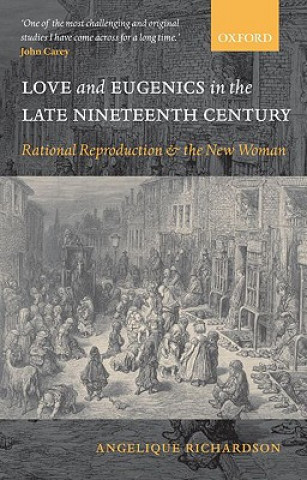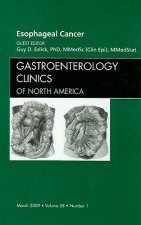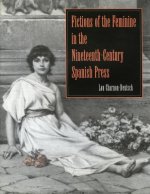
Doručenie
Nákupný poradca





Nehodí sa? Žiadny problém! U nás môžete do 30 dní vrátiť
 Darčekový poukaz
v ľubovoľnej hodnote
Darčekový poukaz
v ľubovoľnej hodnote
S darčekovým poukazom nešliapnete vedľa. Obdarovaný si za darčekový poukaz môže vybrať čokoľvek z našej ponuky.
Love and Eugenics in the Late Nineteenth Century
 Angličtina
Angličtina
 184 b
184 b
30 dní na vrátenie tovaru
Mohlo by vás tiež zaujímať


The idea of eugenics - human selective breeding - originated in Victorian Britain in response to the urban poor. Darwin's evolutionary theory had laid the foundations for eugenics, replacing paradise with primordial slime. Man had not fallen from Grace, but risen from the swamps. And, as architect of his own destiny, he might rise still further. Eugenics was developed by Darwin's cousin Francis Galton in the 1860s. Embracing the idea of evolution, eugenists argued that through the judicious control of human reproduction, and the numerical increase of the middle class, Britain's supremacy in the world maintained. Born and bred among the competitive Victorian middle class, eugenics was a biologistic discourse on class. Aiming at 'racial improvement' by altering the balance of class in society, it was, Galton argued, 'practical Darwinism'. Eugenics found its most sustained expression in fiction and the periodical press, and was central to late nineteenth-century ideas on social progress forming part of the debate between hereditarians and environmentalists that peaked in the closing years of the century. Even Gladstone had his vital statistics measured in Galton's eugenic laboratory.Among the champions of eugenics were social purity feminists and New Women, writers such as George Egerton, Ellice Hopkins, and Sarah Grand, who argued that women were naturally- biologically - moral, and that through rational reproduction middle-class women could regenerate the British imperial race. The New Woman has been the subject of numerous critical works in the last ten years or so. However, the oppressive ideas that coexisted with the emancipatory theories of some New Women - ideas that were supremely class conscious - remain largely unexamined, as the focus remains on her more progressive aspects. Love and Eugenics in the Late Nineteenth Century recontextualizes New Woman writers, demonstrating that they were as concerned with the questions of poverty, sickness and health as they were with the changing role of women, the issue for which they are currently generally known and celebrated.Focusing on fiction and the press, and drawing on the papers and published work of Galton and other eugenists, Love and Eugenics in the Late Nineteenth Century reveals the cultural pervasiveness of eugenics and explores, for the first time, the intimate relations between early feminism and eugenics, and making a radical contribution to nineteenth-century studies.
Informácie o knihe
 Angličtina
Angličtina
Kategórie




 Ako nakupovať
Ako nakupovať


























